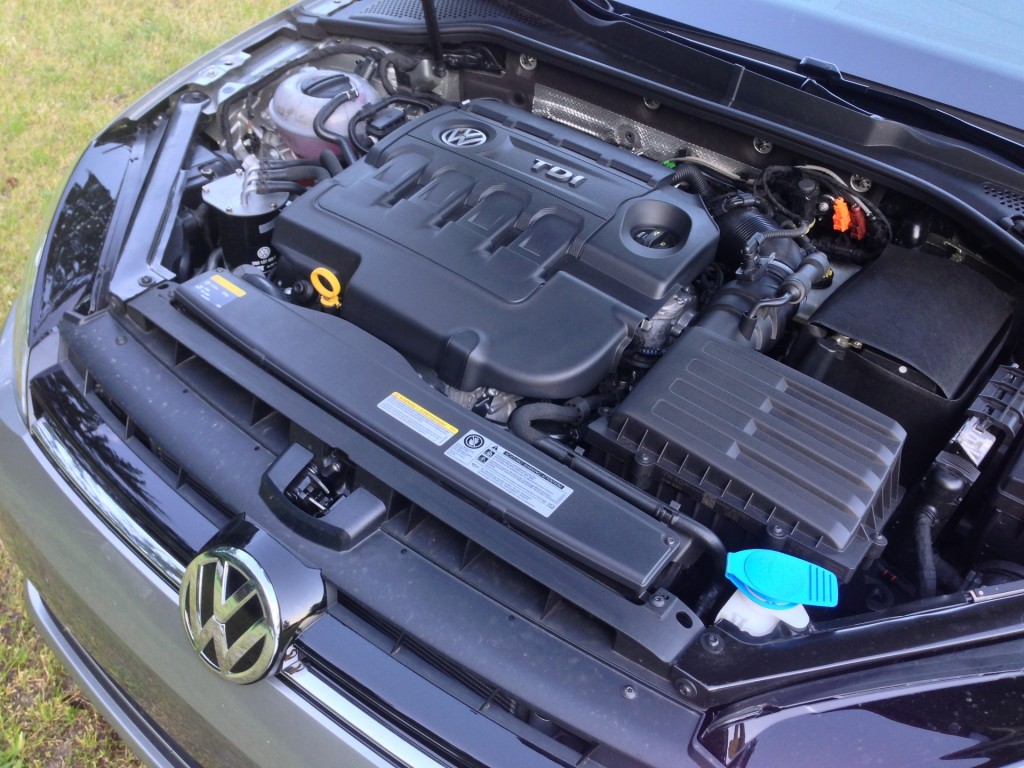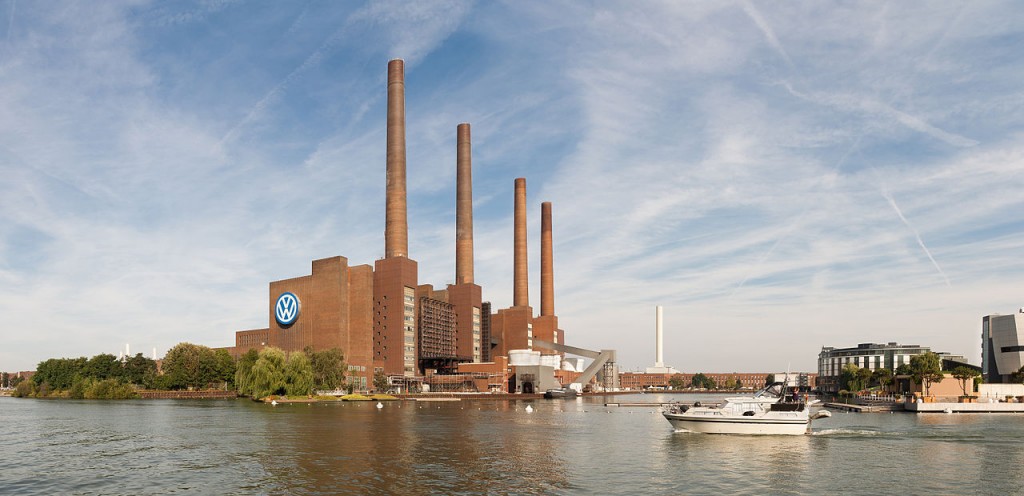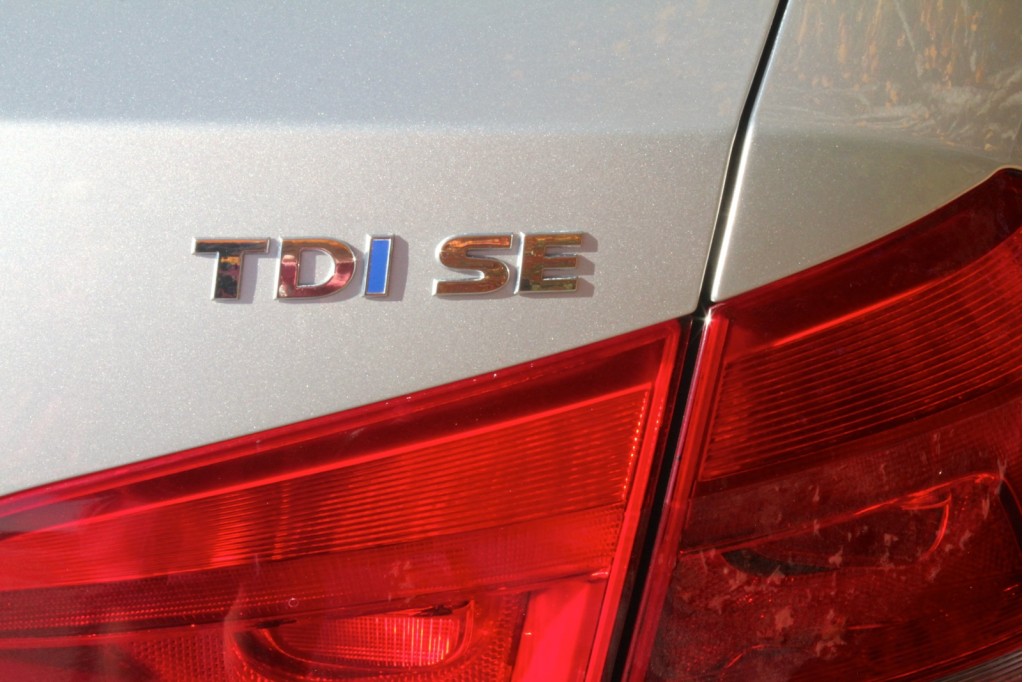It's getting close to two years since Volkswagen admitted it had installed "defeat device" software on hundreds of thousands of diesel vehicles sold in the U.S.
The fact that VW carried out the deception is a well-documented story, covering how the software worked, how the company cheated, and more.
But what went on behind the scenes leading up to Volkswagen's admission of guilt is a less well-known tale.
DON'T MISS: VW, Audi TDI Diesel Cars Had 'Defeat Device' That Violated EPA Rules, 500K Cars Recalled (Sep 2015)
A new book, titled Faster, Higher, Farther: The Volkswagen Scandal, aims to shed light on the events leading up to the company's admission in September 2015.
Now The New York Times has published a passage adapted from the book, which gives a brief look at what readers can expect from author Jack Ewing.
What's most remarkable is the intricacy of the operation to cover up the polluting diesel vehicles.

2015 Volkswagen Golf TDI SE
The decision to equip engines in TDI diesel cars with defeat devices was made in 2006, in response to more stringent U.S. emission limits that came into effect for cars built starting January 1, 2008.
The result was emissions of up to 35 times the permitted legal limit of nitrogen oxides during real-world use, but perfect compliance during testing.
For years, the automaker went relatively unquestioned—until a pair of graduate students from West Virginia University inadvertently discovered what became the tipping point.
CHECK OUT: Brand-new 2015 Volkswagen TDI diesels back on sale after modifications
In 2013, the two students tested a Volkswagen Jetta and Passat TDI, with the goal of pointing out that modern diesel vehicles were a viable way to save fuel and reduce emissions per mile.
The next year, following their tests, the students published a report that detailed the troubling results of the cars' emissions in real-world use: neither vehicle complied with the EPA limits under which it had been certified as legal.
This sent alarm bells off in Wolfsburg, Germany, where Volkswagen is headquartered.
Volkswagen Plant, Wolfsburg, Germany (photo by Richard Bartz)
The vehicles that polluted well over legal limits had somehow been able to pass U.S. emission testing.
That was the point at which Volkswagen's deceptions increased dramatically.
The automaker met with the California Air Resources Board—which had done its own testing to confirm the emission issues—and offered to recall the cars and update their software to improve efficiency and resolve the emission issues.
READ FULL COVERAGE: Volkswagen diesel emission scandal
Instead, Volkswagen used that update as an opportunity to enhance the defeat-device software's ability to recognize when the car was undergoing testing.
CARB tests showed NOx levels rose considerably after 23 minutes of testing: exactly 1 minute after the standard test cycle was completed.
Volkswagen continued to meet with CARB to insist there was no wrongdoing, and offer sequential excuses as to why the vehicles performed as they did.

2014 Volkswagen Passat TDI
Up until that point, no one had explicitly accused Volkswagen of cheating, but that conclusion was becoming clearer—and the automaker was simply buying time.
We know how the rest of the story unfolded.
Volkswagen admitted to its defeat device operations; the CEO of VW Group, Martin Winterkorn (formerly CEO of Audi) resigned within a week; and the automaker has thus far paid more than $20 billion in fines, settlements, and buybacks.
It still faces dozens of lawsuits in multiple countries, and after it resells its stock of new 2015 diesel cars updated with EPA-approved software, it's unlikely to sell diesels in North America again for many years—if ever.
The company had multiple chances to be transparent with regulators and officials, and most regulators suggest that if it had come clean on the cheating immediately, the penalties would have been far less harsh.

2012 Volkswagen Passat TDI Six-Month Road Test
Instead, it stubbornly kept on digging itself into a very, very costly and humiliating hole.
The book will go on sale May 23, 2017, offering much more detail into the entire Volkswagen diesel emission cheating scandal.
[hat tips: George K, International Man of Mystery]
_______________________________________












